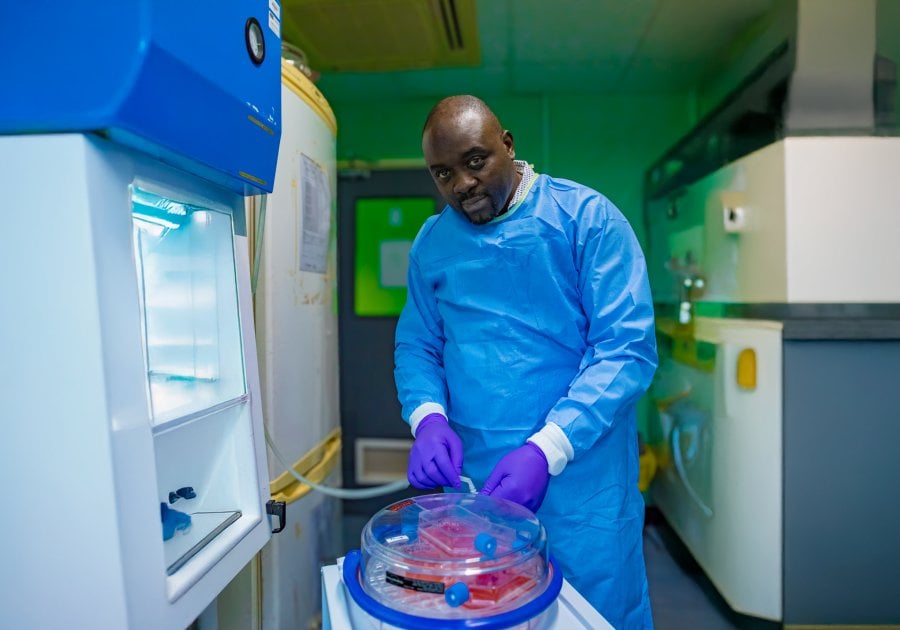
A man working in a lab
Professor Amambua-Ngwa is among esteemed scientists and scholars who have been elected as Fellows. The AAS Fellowship recruitment follows a rigorous evaluation by The African Academy of Sciences Membership Advisory Committees (MACs) in various fields of specialisation.
"We are incredibly proud of Professor Amambua-Ngwa’s election to the African Academy of Sciences. His achievement does not only demonstrate his outstanding contributions to science, but also a reflection of the Unit’s unwavering commitment to building and championing scientific excellence across Africa. This is a moment of great pride for all of us," remarked Professor Umberto D'Alessandro, Unit Director.
Professor Amambua-Ngwa's distinguished career includes an international fellowship with the Wellcome Sanger Institute, where he has led research on malaria population genomics, antimalarial resistance, insecticide resistance in Anopheles mosquitoes, and human genetic factors contributing to malaria severity. He coordinates several prominent initiatives, including the H3Africa Pan-African Malaria Genetic Epidemiology Network (PAMGEN) and the Genomic Surveillance of Malaria in West Africa Project (GSM). He also supports various consortia such as the Pathogen Genomic Diversity Network Africa (PDNA) and the West African Network for TB, AIDS, and Malaria (WANETAM), where he leads the malaria work package.
Expressing his gratitude, Professor Amambua-Ngwa stated, "I am honored to be elected as a Fellow of the African Academy of Sciences. This recognition is an opportunity to highlight the critical expertise we bring to transform genetic epidemiology. I remain committed to advancing research that tackles the challenges of infectious diseases to contribute to a healthier world."
Professor Amambua-Ngwa completed his BSc, MSc, and PhD in Biochemistry at the University of Buea, Cameroon. His early work focused on immunopathogenic mechanisms of infections with the Onchocerca volvulus parasite, which causes blinding filariasis. As a postdoctoral researcher, he employed molecular biology techniques to identify potential antigens for a malaria vaccine. At MRCG at LSHTM, his research focuses on malaria parasite population genetics and molecular epidemiology, contributing valuable insights into genetic signatures of drug resistance and transmission patterns.
Professor Amambua-Ngwa has contributed to more than one hundred and thirty publications and has supervised or co-supervised doctoral students while supporting 11 postdoctoral fellows. His contributions to the field of malaria research continue to shape the landscape of disease control and global health.
If you enjoyed this article and would like to build a career in global health, we offer a range of MSc programmes covering health and data, infectious and tropical diseases, population health, and public health and policy.
Available on campus or online, including flexible study that works around your work and home life, be part of a global community at the UK's no.1 public health university.
